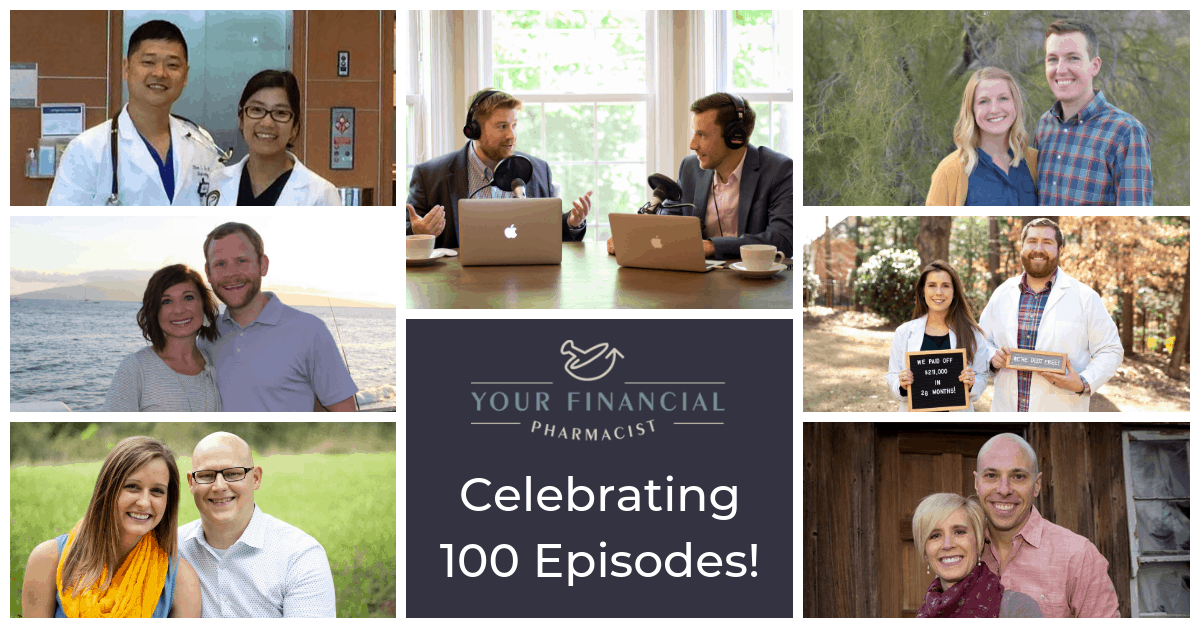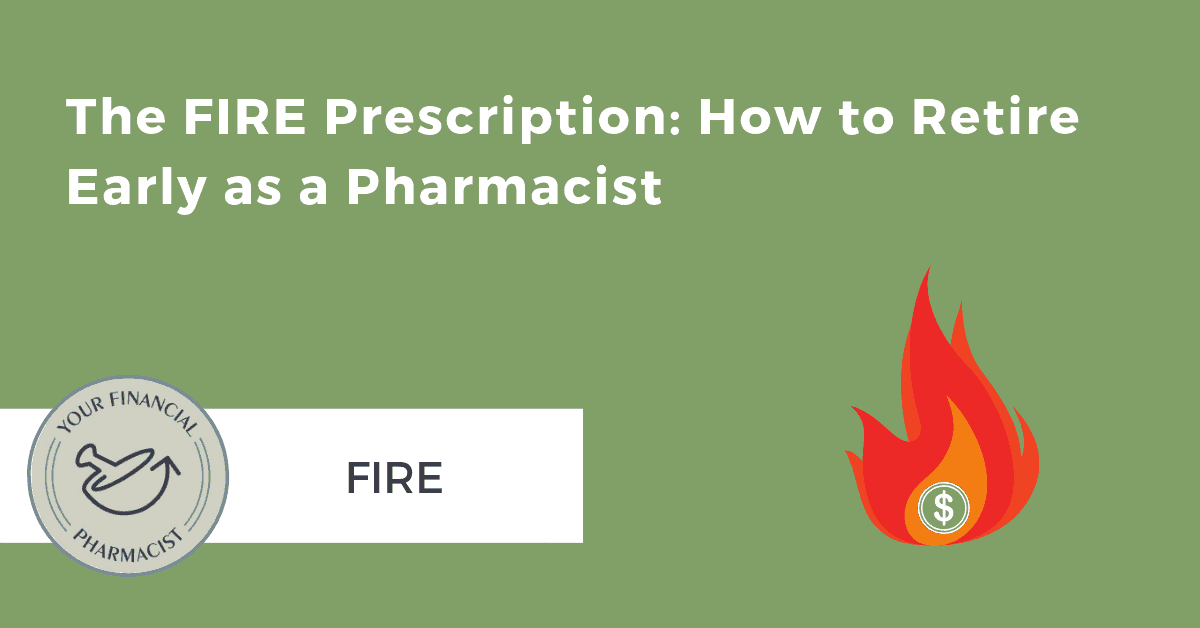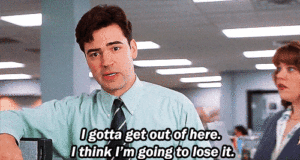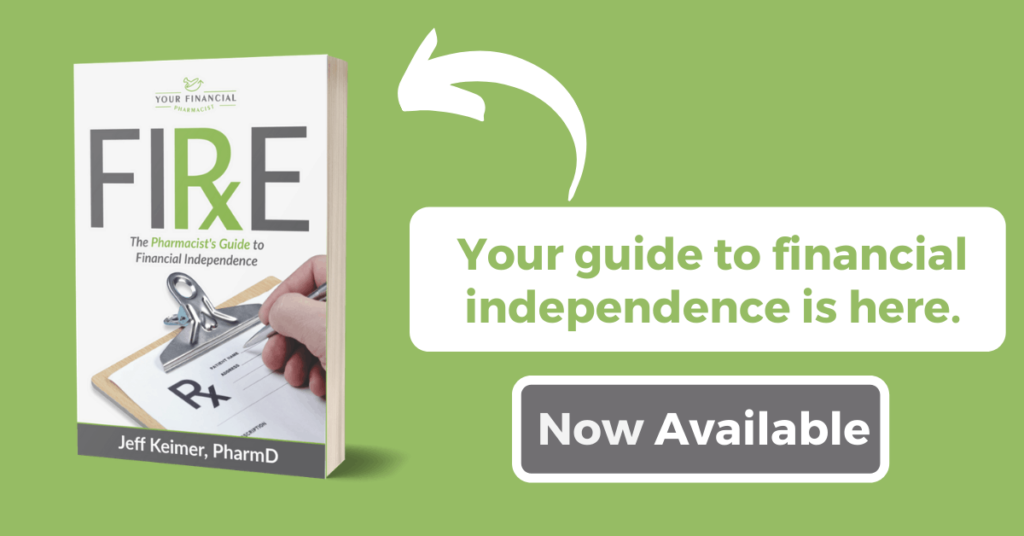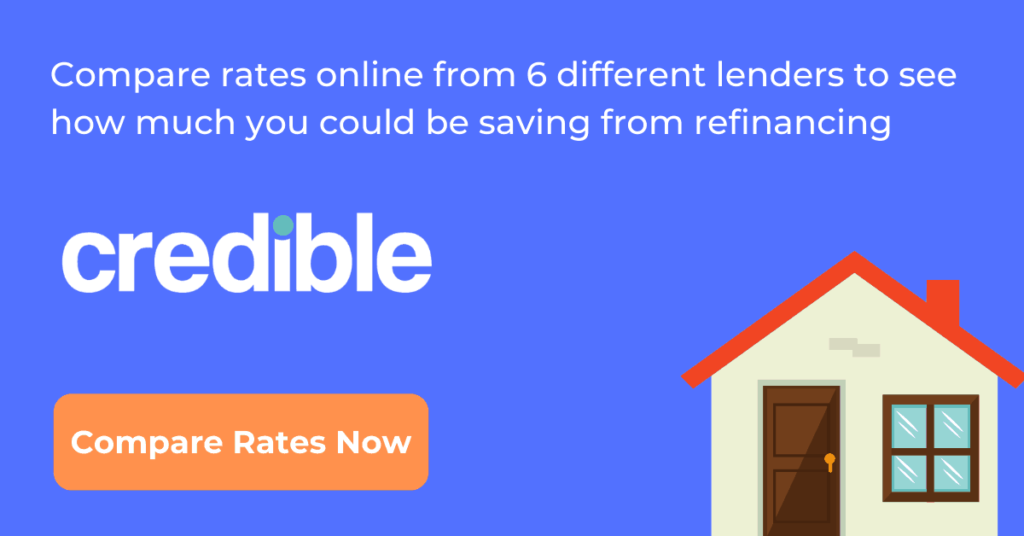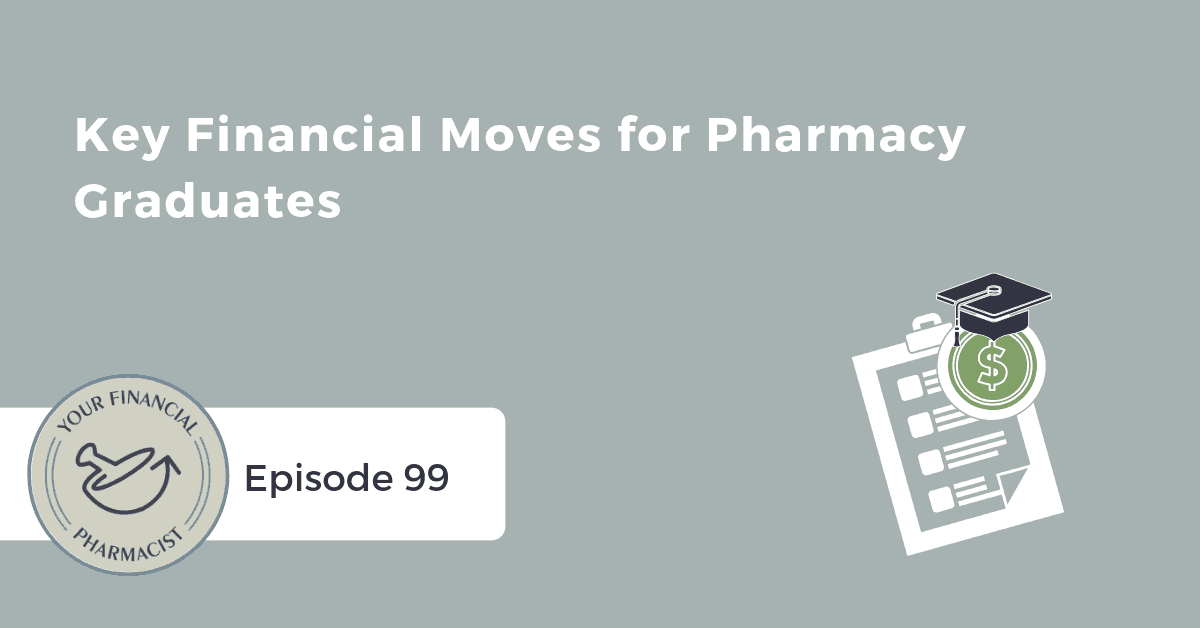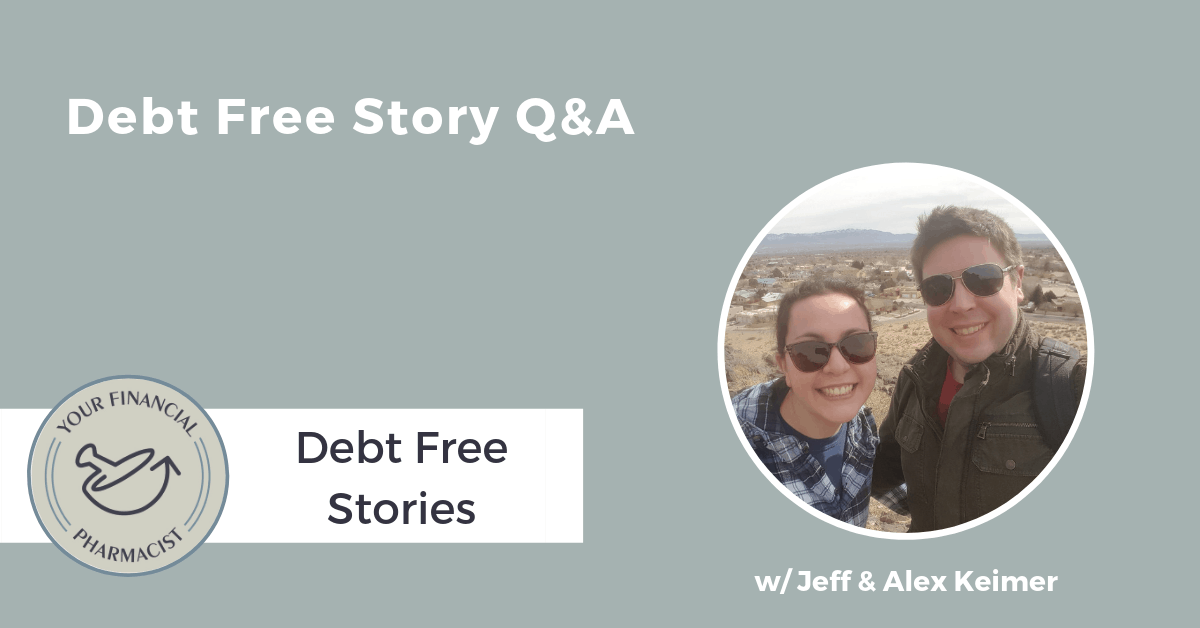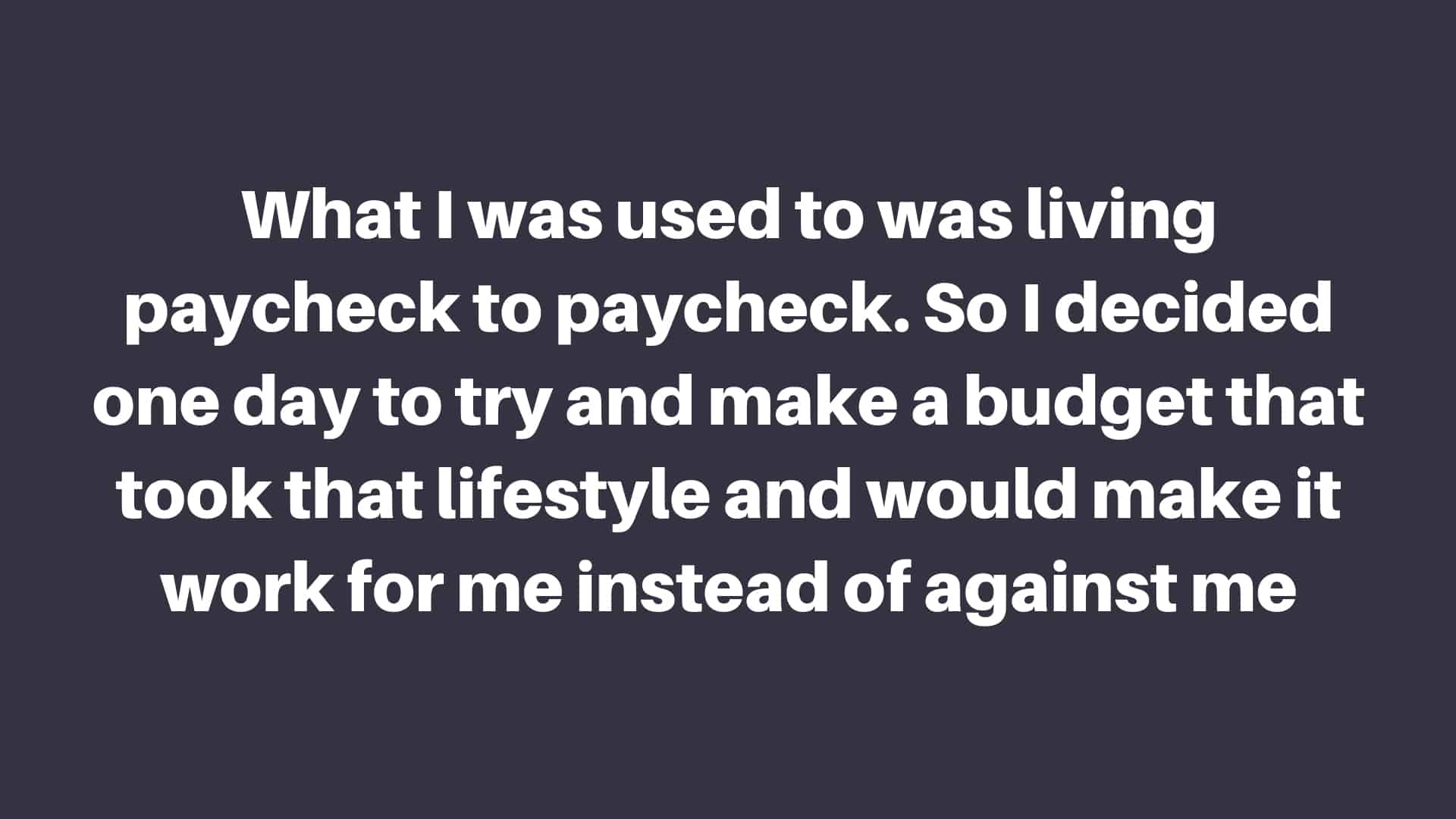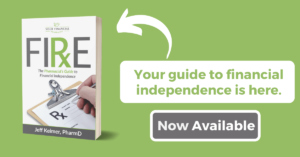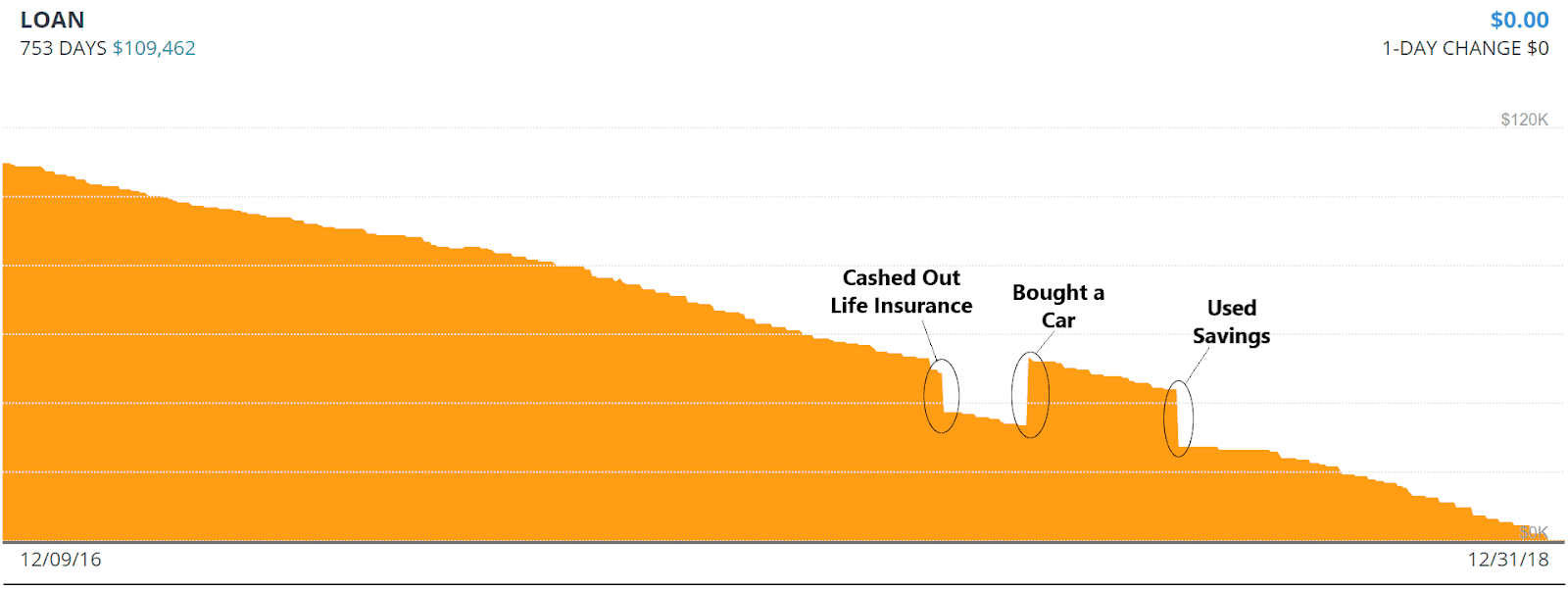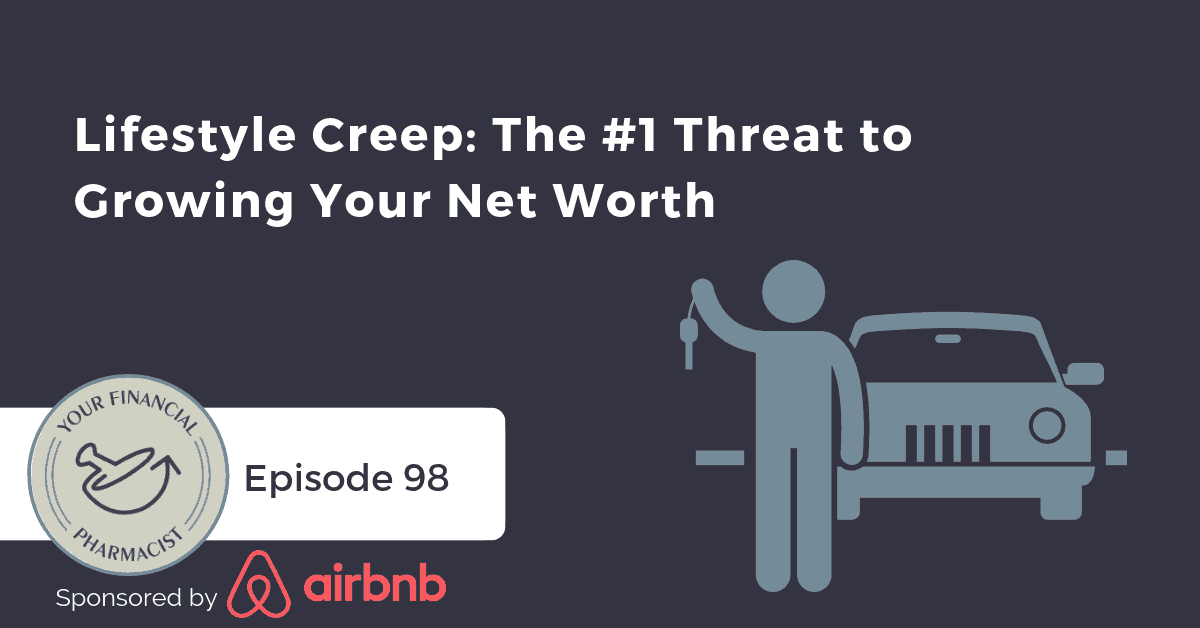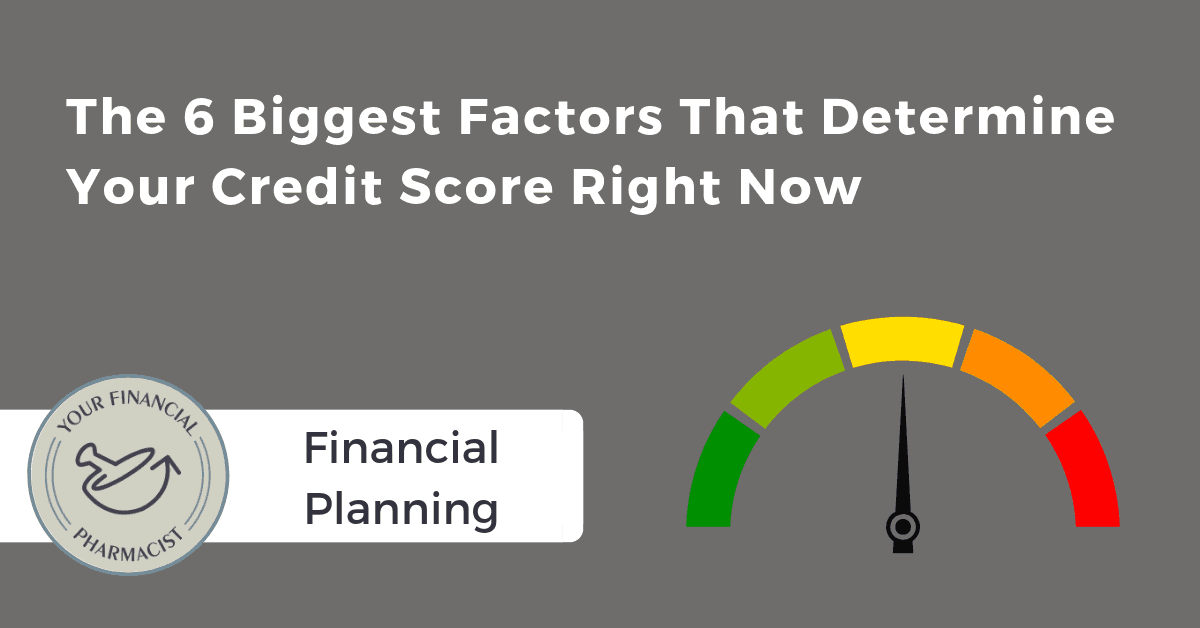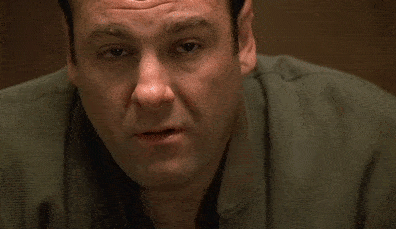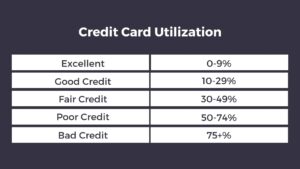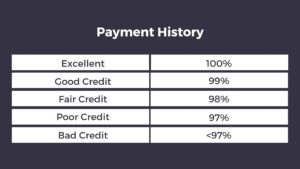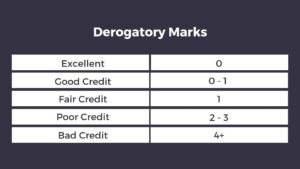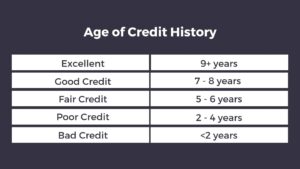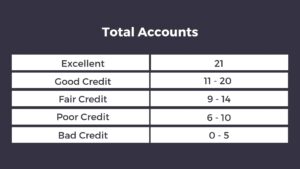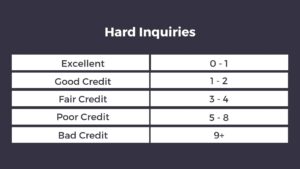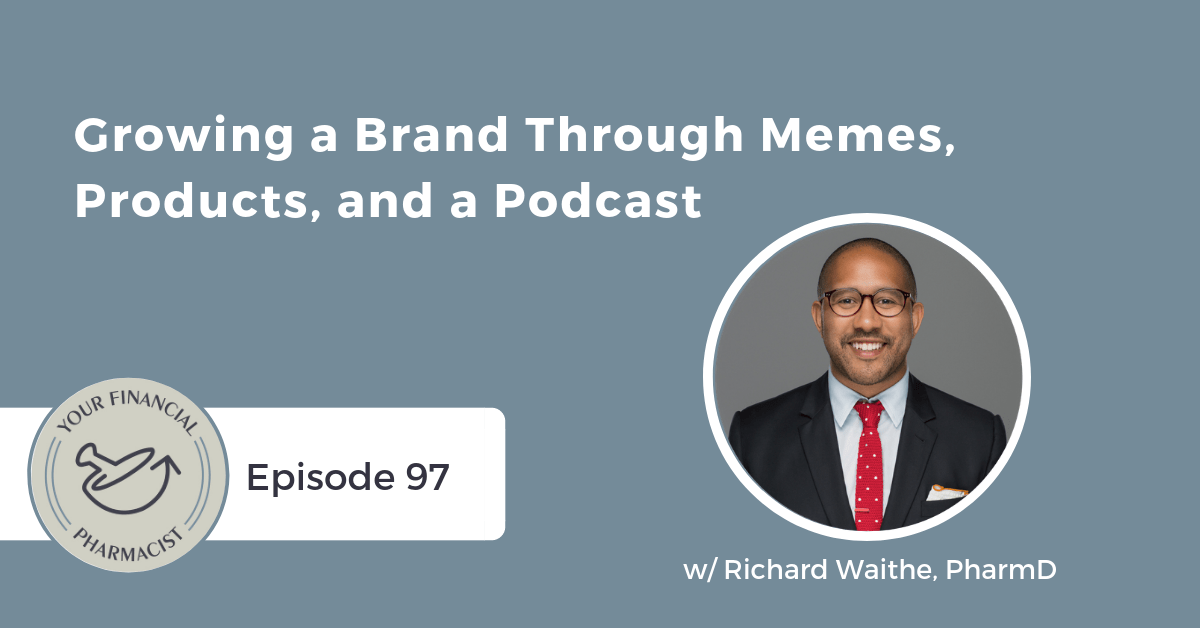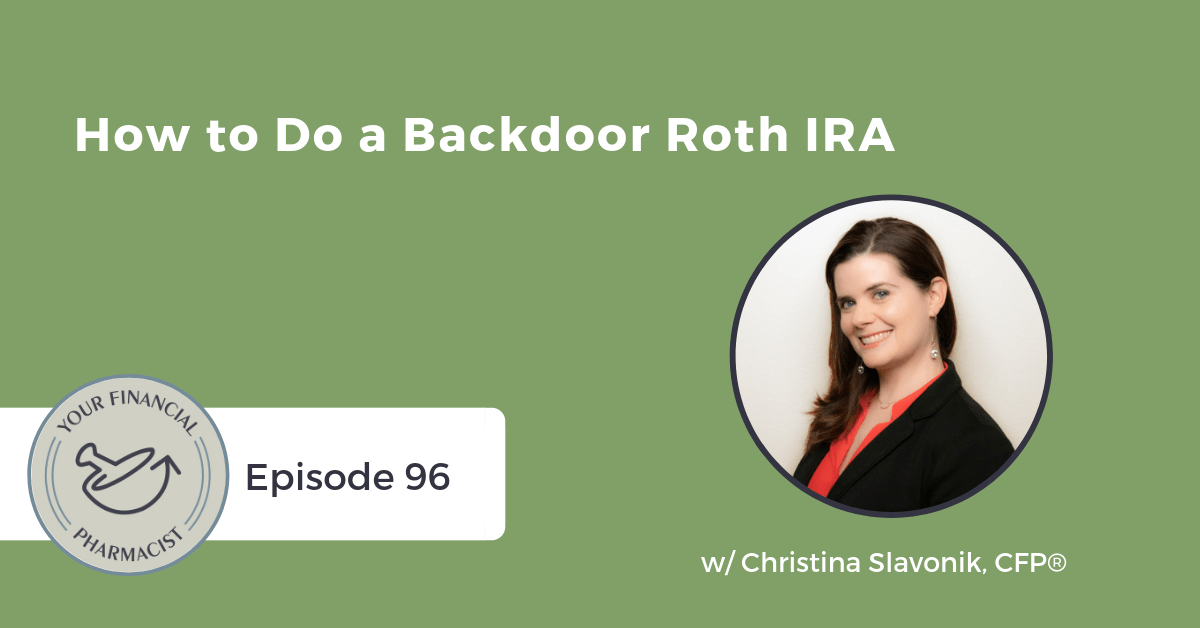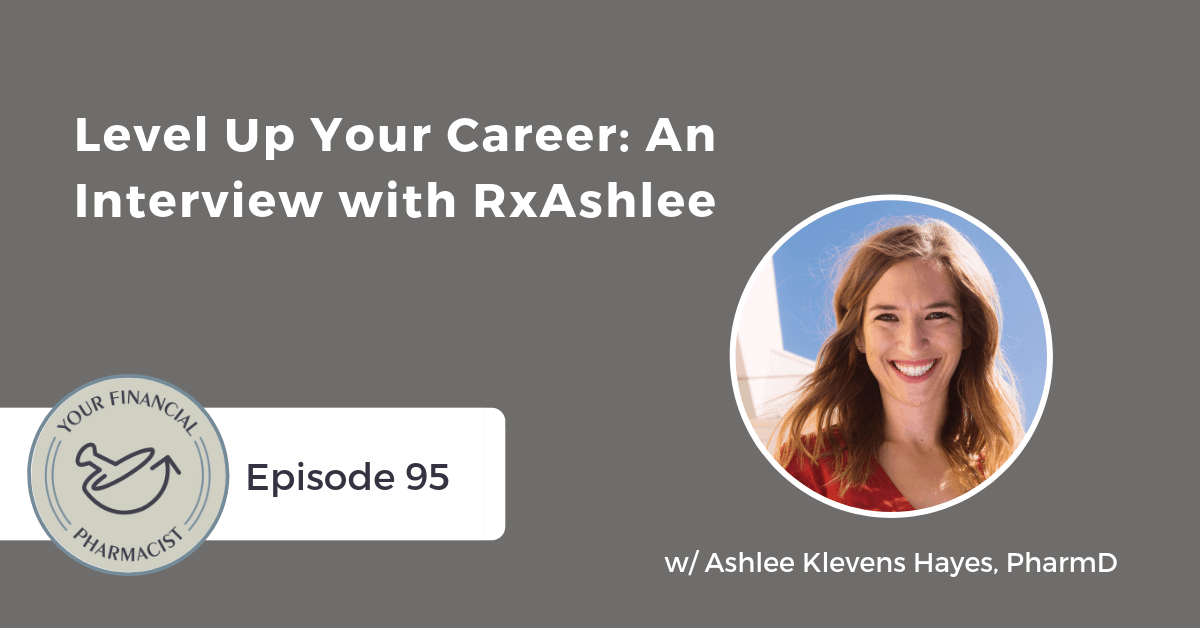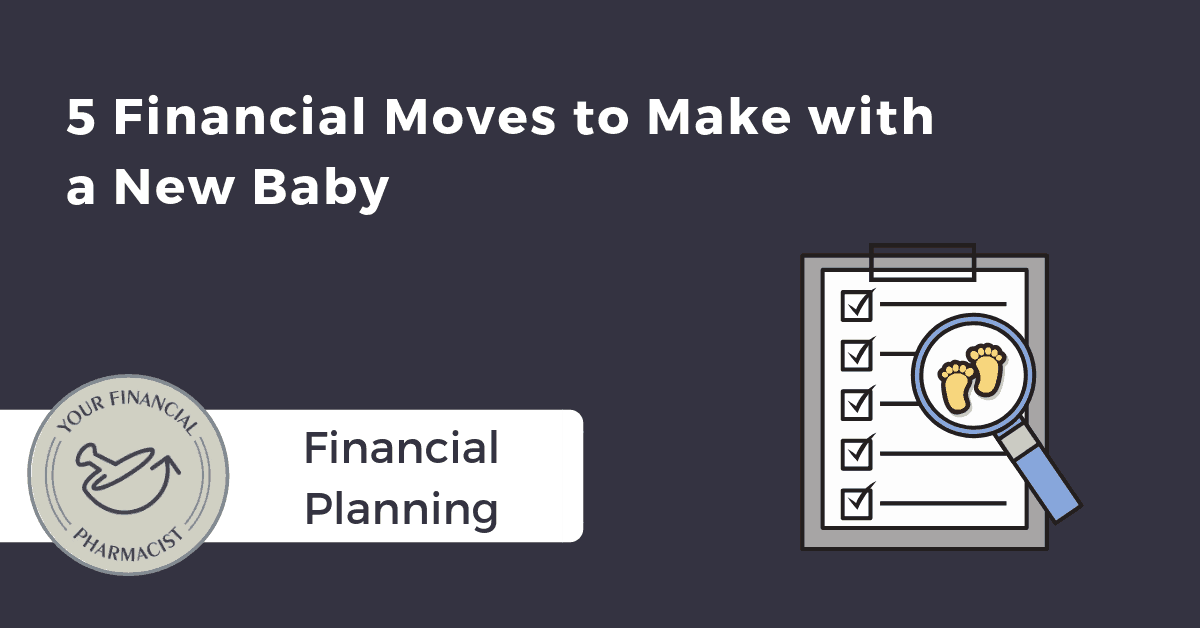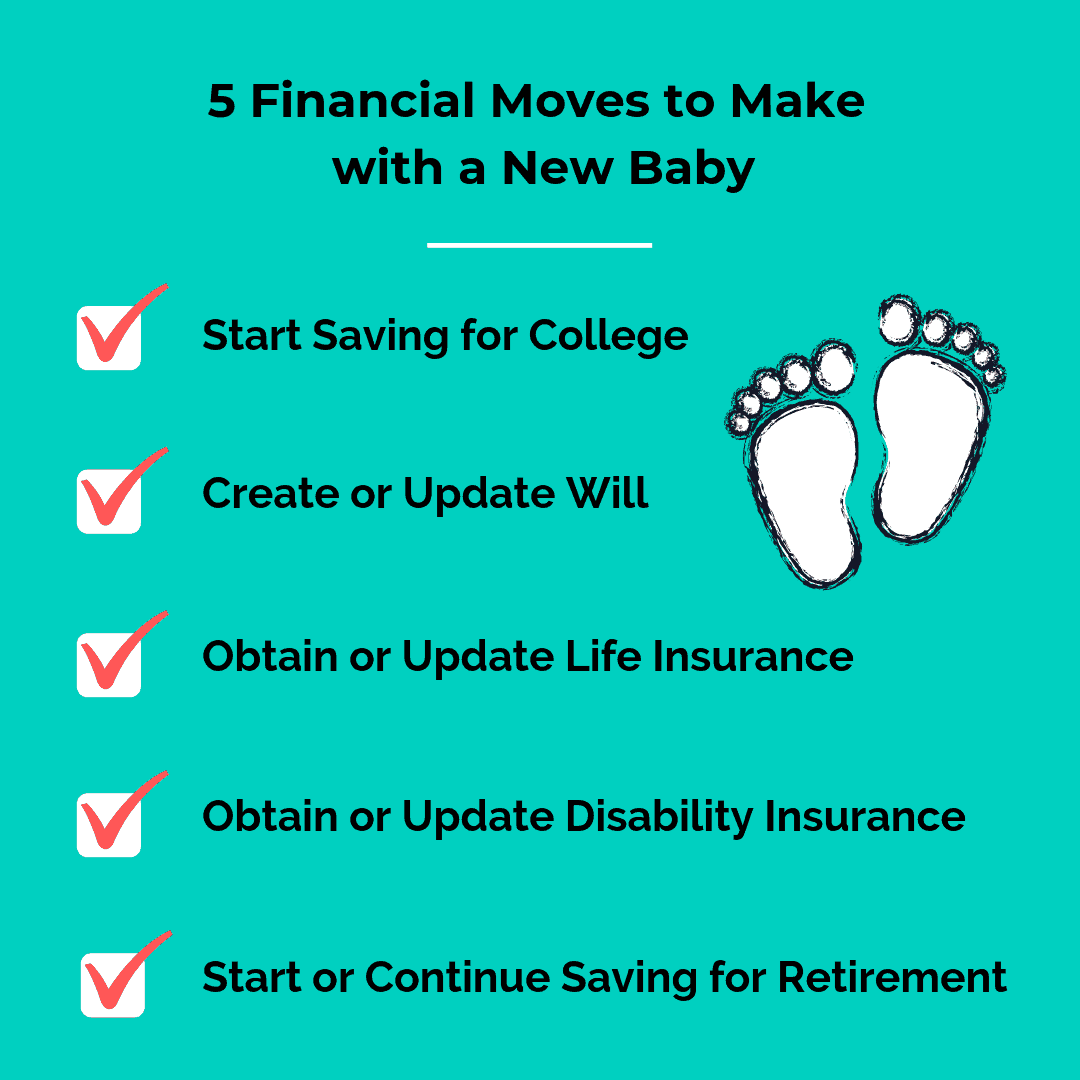Celebrating 100 Episodes of the YFP Podcast!
Tim, Tim and Tim celebrate 100 episodes of the Your Financial Pharmacist podcast by reminiscing about their favorites, talking about the future of the podcast, and hearing updates from several guests and pharmacy entrepreneurs that were previous guests on the podcast.
Summary
YFP celebrates 100 episodes! Tim, Tim and Tim talk about their podcast journey so far, what’s to come in the next 100 episodes, and hear updates from guests and other pharmacy entrepreneurs.
The Tims agree that it has been incredible to witness the growth of the YFP community and extend their gratitude to all of the listeners. They find it inspiring to see how people are impacted and empowered by the content on the YFP podcast.
After discussing their favorite episodes, several previous guests come back on the show to share updates on their financial journey and they way the YFP podcast has impacted their lives. We hear from Nick Ornella, Jill and Sylvain Paslier, Derek Schwartz, Blake Johnson, Alex Barker, Blair Thielemier, Adam Martin, Ashlee Klevens Hayes, and Nate Hedrick.
The conversation shifts to why the YFP team continues to publish podcast episodes and what the next 100 episodes will consist of. Tim Baker shares that they are just scratching the surface and have so much more content and stories to uncover. Tim Church says that what motivates him to continue is when he hears stories of the transformation of people from the YFP brand. Tim Ulbrich is excited to continue moving the issue of personal finance and how it affects so many aspects of one’s life. Although the team at YFP are working hard to share the impact of personal finance, the collective community of pharmacists that have formed are where the big changes and movement will be seen.
Mentioned on the Show
- YFP Facebook Group
- YFP 57: The Power of Automating Your Financial Plan
- YFP 73: How to Determine the Priority of Investing
- YFP 59: Life After Debt Free…Now What? w/ Adam & Brittany Patterson
- YFP 31: One Pharmacist’s Journey to Paying off $211,000 in 26 Months w/ Adam Patterson
- YFP Planning
- The Happy PharmD
- YFP 060: One New Practitioner’s Lessons Learned: Accruing $224,000 of Debt in 7 Years
- YFP 009: Interview w/ Carrie Carlton
- Email your favorite episodes or episode ideas to: [email protected]
- YFP 079: Is It Time to Redefine Retirement? w/ Nick Ornella
- Young Professionals Guide to a Year Off
- YFP 050: One Couple’s Journey Paying Off $197,000 of Student Loans in 28 Months w/ Jill & Sylvain Paslier
- YFP 014: Interview with Derek Schwartz – Debt Free Them Hour
- YFP 082: Debt Free Theme Hour with the Teacher & Pupil w/ Joe Baker & Blake Johnson
- YFP 007: Maximizing Your Income w/ Alex Barker
- YFP 038: The Happy PharmD’s Journey to Becoming Debt Free w/ Alex Barker
- YFP 092: Creating an Indispensable Pharmacy Career w/ Alex Barker
- Pharmapreneur Academy
- How to Build a Pharmacy Consulting Business: Your Rx for Finding Freedom and Loving Your Career by Blair Thielemier, PharmD
- YFP 039: One Pharmacy Entrepreneurs Journey to Maximizing Income & Paying Off Student Loan debt w/ Blair Thielemier
- YFP 089: From Unemployed to Successful Pharmapreneuer w/ Blaire Thielemier
- The Fit Pharmacist
- Rx: You!: The Pharmacist’s Survival Guide to Managing Stress & Fitting in Fitness by Adam Martin, PharmD
- The Fit Pharmacist Healthcare Podcast
- YFP 091: How to Become a Fit Pharmacist w/ Adam Martin
- 7 Figure Pharmacist by Tim Church, PharmD and Tim Ulbrich, PharmD
- RxAshlee
- YFP 095: Level Up Your Career: An Interview w/ Ashlee Klevens Hayes
- Real Estate RPH
Episode Transcript
Tim Ulbrich: Hey, what’s up, everybody? Welcome to this week’s episode, Episode 100 of the Your Financial Pharmacist podcast. Excited to be here in-person with Tim Church and Tim Baker. I don’t think there’s any other way we could have done this than being in person in Episode 100. We’re going to have fun with this episode. We’re going to reminisce a little bit on the journey, we’re going to talk a little bit about what the community means to us. We’re going to talk through some of our favorite episodes, and then we’ve got some special guests coming back on to the podcast, giving us an update and talk about what Your Financial Pharmacist has meant to them in their own journey as well. And then we’re going to finish off this episode talking about what do we see as the future of Your Financial Pharmacist? And what are the hopes and dreams that we have going forward? Now, before we get in and get a little bit sentimental on, you know, what this journey has meant for us, I want to first express I think as I was reflecting over the last few weeks, awaiting Episode 100, I was trying to think of what is one word or one feeling that comes to mind when I think about Episode 100. For me, it was a feeling of gratitude, of gratitude to the Your Financial Pharmacist community that really, without this community and without the support of empowering and helping one another and being so encouraging to one another, none of this is possible. And I think as we think back to starting this journey of the podcast back in summer 2017, it was all about creating a platform that inspired and empowered people to take on the steps that they needed to take towards their journey of financial freedom, whatever that might look like in their own financial plan. And to see some of that beginning to happen, to see the community empowered and helping one another is an incredibly powerful feeling and I think one that is more rewarding for us than certainly anything else. So Tim and Tim, as you kind of think on this journey, here we are at Episode 100, what are some of the feelings that come to mind, Tim Baker? It’s been a fun ride.
Tim Baker: Yeah, it’s really been unbelievable to me. And I think the podcast has really been a great conduit to really push forward I think our vision of what YFP, what we want YFP to be and I think what YFP is really doing for a community of like-minded pharmacists. And you know, I think when we met via Twitter and we were kind of looking at those messages back and forth — maybe we’ll post those on the show notes, you know just kind of the screenshots, which are fairly funny.
Tim Ulbrich: For someday when everybody’s like, what is Twitter?
Tim Baker: What is Twitter, yeah. You know, I guess I never would have thought that like this would have been a thing. So I think that I can’t really express the feeling that I get when we get feedback, either about the podcast or just us speaking, going around and speaking with different pharmacy schools and communities. And it’s just – I said it, it just jacks me up. It gets me fired up, you know, because other people are getting fired up about a topic that can be fairly dry and boring. But I think that that’s what this thing, YFP, is really – and it’s like when we started the podcast, it was me and you. And we’re like, what’s a podcast?
Tim Ulbrich: And will anybody listen?
Tim Baker: And will anybody listen? And I think the answer to that is yes. And you know, it’s kind of figuring that out and like now, it’s kind of taken on a thing of its own. And we’ve had so many great contributions and so many great stories and voices. Like, I’m a fan of the show. And lots of times these days, I’m not part of the show. But I listen and I get inspired by the community. And you know, that’s kind of been in the – it’s kind of poured over to this Facebook group and some of these other avenues that we see interaction and engagement. So if we would have – we’re at Episode 100, so we started the podcast two years ago, essentially, like I never would have thought it would have been this. I thought, you know, I thought we would have a few episodes. I think the average podcast is like eight episodes long or something like that.
Tim Ulbrich: Seven or eight is what I’ve heard.
Tim Baker: And we’re at 100. And I think it’s a credit to you, Tim Ulbrich and really Church, I think being all three of us kind of putting out great content, in my opinion, and seeing that engagement level rise and that needle move is what we talk about.
Tim Church: Yeah, first off, kudos to you guys because I had nothing to do with the podcast in the very beginning. And just taking it from idea and vision and actually making it happen, I mean, I think it’s unbelievable. I mean, when you look back, even the quality and the organization that you guys had to make this happen has been unbelievable. And to watch that grow over time has been really cool. And the opportunity to jump in on some episodes and then now kind of getting to interview some of the guests on the side hustle edition, it’s been really fun to be a part of that. But one of the things that really fires me up too is just seeing how this has been able to get the word out that this topic of personal finance is so important. But it’s not just about, you know, getting your finances in order and growing your net worth but just that feeling of relief, peace, the passion, and of being on that journey and feeling like you can do anything beyond just getting your finances in order. So I think it’s really cool to see that. And I think the pod has just been a great way to get the message out, to get people involved, and it’s resulted in a lot of great relationships over these two years, you know, with pharmacists in the community, with even non-pharmacists, with schools of pharmacies, organizations. So I think it’s just been a fun ride.
Tim Ulbrich: Yeah, and I think that empowerment piece is so important. I mean, I’m thinking back to Tim Baker, when were at APhA in Seattle just a couple months ago, and people coming up to the booth and talking about the podcast. And you know, I think while it’s fun that people recognize the podcast, you know, that’s rewarding for a lot of the work. What gets me more excited is when somebody says with such enthusiasm, “Hey, I listened to this episode and now, my spouse and I or I did this or one step closer,” and they start to light up with energy that they feel like their finally in control of their financial plan. And it may be a baby step, it may be multiple steps, but that sense of empowerment as I think about the vision of where we were a few years ago, that’s what it’s all about. And it’s not about us, it’s about people feeling like that they are in a sense, in control of their finances and that peace of mind that comes with it. And I think that as I reflect, you know, Tim Church, when you talk about kind of not being involved as much in the podcast on the front end, like the work you’ve done with the side hustle series and as we really look back at the journey of 100 episodes, the front 50 really being focused on a lot more content and topics and we’ve shifted and done a little bit more on featuring more stories and side hustles and entrepreneurial types of journeys, we’re going to do a little bit of both going forward, but I think the evolution of the show over time has been a lot of fun. So let’s on that note, talk about favorite episodes because I think it’s fun to reflect back. And I think I have about 95 out of 100 of them memorized in terms of which episode. But I don’t think we could mapped out all the content that we’ve done. It’s been fun as we’ve had people reach out and say, “Hey, I’ve got a cool story.” And it kind of takes on a life of its own over time. So Tim Church, favorite episode? And maybe a runner-up.
Tim Church: So this is very tough. There’s a ton of them. And none of the ones that were my favorite are with me in them. So I’ll throw that out there. But Episode 057, the Power of Automating your Financial Plan, which is one that you did solo, Tim Ulbrich, which was awesome because I did one episode solo, and it’s really hard.
Tim Baker: It’s hard. It’s really hard.
Tim Church: It’s really hard to talk, but you did such a good job. And when I think about that topic, I think it’s so important to not only make it as a convenience factor, but really, that’s one of the most powerful ways to grow your net worth over time and getting that in play. And I think there’s a lot of cool technology out there that you can make it happen. But that, to me, was really powerful. And then my runner-up was Episode 073, How to Determine the Priority of Investing, which –
Tim Ulbrich: The buckets.
Tim Church: Yeah, which I nicknamed “Baker’s Buckets” because we talk about kind of the order in which you put in your tax-favored retirement plan. So that was a cool episode too.
Tim Ulbrich: Awesome. Tim Baker, what about you? Favorite and a runner-up.
Tim Baker: Yeah. I think my favorite, the one that sticks out to me, I really liked the episode with Adam and Brittany Patterson.
Tim Ulbrich: Oh, so good.
Tim Baker: Where, you know, I think Adam was the first episode in Episode 031 where he was just walking us through the journey of paying off $211,000 in 26 months. It’s unbelievable to me that to be able to achieve something like that in that short a time frame is just something that, you know, causes me to really pause and really think about that feat. And it’s impressive to me. And I think we had both of them back on Episode 059 to kind of talk through life after debt and really, the world’s their oyster. And obviously, I know Adam and Brittany. They’re actually clients of YFP Planning. And they’re just fantastic people and great to just learn more about what drives them and really help them to kind of take their journey to the next level. So I think those would be my 1A and 1B. I think my runner-up to that one, I really liked the episodes that Alex Barker, I think we had him on a couple times.
Tim Ulbrich: Three, right, now?
Tim Church: He holds the record.
Tim Ulbrich: Yes.
Tim Baker: He’s one of those individuals that, like I think when he talks, I listen. I think he has a very conversational way to kind of get his point across and his story, and to be honest — I think I’ve told him this in the past is that when I was, you know, thinking about launching Script Financial, now YFP Planning, I needed an education. I needed to really understand more about the clients for which I was to serve, and at the time, I didn’t have a lot of pharmacy clients. But I really wanted to plug into that world and see what makes pharmacists tick, what are they really looking for? And in Alex’s podcast was actually one of the ones that I reviewed and listened to. And I really like it. And the fact that we had him on our podcast so many times, and he’s a big supporter of our brand and we of his, you know, I think what he’s trying to do with Happy PharmD is just commendable. And I think I really enjoy having him on the podcast.
Tim Ulbrich: Great recommendation — sneaking in three, by the way, with the 1A, 1B. We’re going to let it slide.
Tim Baker: Yeah, you know, I’ve got to have some more.
Tim Ulbrich: You know, I would add — certainly I agree with everything you said about Alex. I think he’s a thought leader, I think he stimulates great conversation, great discussion, which we need in our profession. You know, the Pattersons, what’s so cool when I think about the journey that they’ve had, they are now out there doing education.
Tim Baker: Yeah.
Tim Ulbrich: You know, they were at their state association right now in Alabama. So I think back to the compounding empowerment, like they had such a transformation. Now they’re sharing that journey to help others along that way. And that is awesome. I mean, that fires me up.
Tim Baker: It’s inspiring, yeah.
Tim Ulbrich: That’s the exponential factor in terms of allowing the message to get out there and really having a true impact and change. You know, for me, I think that — this was really, really hard. I think about a lot of these episodes, and one of the things I’ve never talked about on the show before is I think selfishly, by doing so many of these interviews, being able to talk to these people is just an amazing benefit. It’s so inspiring and there’s stories that stay with me. They make me better as a person, as a father, as a business owner. And as I had to really think about which one of these, what rises to the top for me is Episode 060 with my colleague at the Ohio State University is Breanne Porter. And she talks so much about her lessons learned through accruing $224,000 of student loan debt. But I think why that episode stands out to me is her transparency and her honesty of what she didn’t know and what she now knows and how she feels throughout that journey. And I think that while we have featured so many debt-free stories along the way, what I really like about that is she’s not yet to the point of being debt-free. And she’s in the grind, she’s in the weeds, she’s working through it. And I think that’s going to resonate and will resonate with so many people as well. The other one that stands out to me, which I’m excited we’re going to have her back on the show in Episode 109 is we had Carrie Carlton on Episode 009. And she talked about her journey beginning to build a real estate empire. And spoiler alert: That empire has expanded. But real estate’s a passion of mine going forward and I think will be a great asset for many pharmacists to consider. And that opened up for me just a whole new area to think about of how she’s really leveraging her skill set in a very different way from pharmacy but is diversifying her income and building up assets in other ways. So those are our favorite episodes from the Your Financial Pharmacist podcast. We’d love to hear from you about what you thought your favorite episodes were and of course, content ideas you have for us going forward, always welcome it. [email protected]. At this point, we’re going to bring back some of the guests that we’ve had on the show before, some of our favorite episodes and stories. We’re going to ask them, we have asked them to give a quick update of their story, where they’re at. And so let’s hear from those guests right now.
Nick Ornella: Hello, this is Nick Ornella from Episode 079 of the YFP podcast. Since being on the show in December, my wife and I submitted the final payment on her student loans, so over $37,000 paid off in a little over 10 months. We took a two-week trip to Spain and Morocco to celebrate and also to celebrate our 1-year wedding anniversary. And after that little spending splurge, we started saving again, this time hopefully to start a family here in the near future. I’m still working full-time as a pharmacy manager at Walgreens, and I’ve been working hard on my blog, the Young Professional’s Guide to a year off. And as YFP celebrates its 100th episode, YFP had an impact on my own journey because Tim Ulbrich was there for me way back in 2016 when I decided to take a year-long sabbatical from my pharmacy career to travel. I found the YFP website and blog and reached out to Tim, and he was there to give me advice and encouragement. He was a big reason why I decided to hit pause on my career and to pursue my dream of traveling for a year. And that year ended up being just an incredible experience and one of the best years of my life. So I’m forever grateful for Tim and YFP for the help and inspiration that he gave me. And I think the work that YFP is doing is important because it helps young pharmacists get out of debt, become financially independent so they can live more intentional lives and not be controlled by debt obligations. You know, it allows people to take bigger risks like starting a new business or becoming an entrepreneur or doing something crazy like I did and quitting their job for a year to pursue a lifelong dream. So a big congrats to Tim and the YFP team on 100 episodes. Please keep up the good work!
Jill Paslier: Hey, it’s Jill and Sylvain Paslier from Episode 050. We wanted to give you a little update on what we are up to now. We’re still budgeting every month, and it feels really great to be saving money instead of sending so much back to the bank for loan payments. Our current spending plan has a little more room for fun stuff like traveling and enjoying our hobbies like playing music. I’m also trying to be a resource for the local college of pharmacy to help encourage financial literacy education for the students. I’m also facilitating Financial Peace University, which is a Dave Ramsey course, at our local church.
Sylvain Paslier: Being in control of our finances and becoming debt-free has given me peace of mind to actually leave my 9-5 job and launch my own business. And I think it’s working well because I could focus on the work instead of worry about the money. I even started my own podcast.
Jill Paslier: I think YFP is a great resource, especially for students and new pharmacists as we are learning how to manage our own personal finances. Many of us make the transition from making very little money to making significantly more, and I think it’s important to make this adjustment wisely so that we have a purpose and a plan for our money. I also really love the online YFP community, such as on Facebook. We can ask questions and have peer support as we continue to learn about managing our money together.
Sylvain Paslier: While there are plenty of resources out there on wealth management and personal finance, finding a specific community of people that you can relate to makes for meaningful connections and increased motivation and progress, which is great about the YFP community.
Jill Paslier: Thanks for listening. Bye!
Derek Schwartz: Hi, this is Derek Schwartz from Episode 014 of the YFP podcast. My podcast aired in September of 2017, when I was still on my journey to becoming debt-free. And my journey started in late 2014, when I made my first student loan payment, and I had over $180,000 in student loan debt to tackle. 40 months later, in early 2018, I made my last student loan payment ever. I paid off $180,000 in debt in 40 months, and looking back on it, it was such an incredible time to not do things with money because I sacrificed every dollar that I could to go into student loans. Every penny I could pinch would go back into it. And that’s the secret. That’s what you’ve got to do. I tell people, if you’re really serious about paying off your debt as soon as you can, you have to budget and squeeze out every dollar and cent you can to go back onto the student loans. Trust me, it’s worth it being on this side. Since I’ve been debt-free, I’ve been able to save money for an emergency fund, I’ve increased contributions to my retirement accounts, and this summer, I’m looking to purchase my first home. All of that couldn’t have been accomplished without paying off my student loans first. And one of the reasons I’m really excited about the YFP community is it’s a group of other pharmacists that are looking for the same goal. They’re looking for financial stability. They want to get their student loans paid off. They want to save money for retirement so they can have some. And it’s such a great community that brings in all the questions, you can get all the answers there, and it’s been amazing to have been a part of it since Episode 014 of my podcast. Happy 100 episodes of the YFP podcast! And I look forward to the next 100. Thanks, everyone.
Blake Johnson: Hey, guys, this is Blake Johnson from Episode 082 of the YFP podcast. Just a quick update on where me and my wife are. We just finished up rehabbing our eighth rental property with our business partners. And that was exciting for us because in April, that marked one year of being in business, and we were able to close, rehab and rent out our eighth property. So we’ve made good strides here in our first year, and we hope to continue to do that in the following years. However, at this time, our market is getting flooded with investors, so we’re planning on slowing down the purchasing a bit and make sure we invest wisely and purchase at the right price. Outside of that, we continue to invest in our Vanguard funds, specifically, our BTSAX mutual fund and also invest and max out my wife’s 401k. This summer, we’re going to enjoy a little trip, bigger than usual. We’re going to go over to Europe and spend a week in Paris and Prague. We both like looking at architecture and just kind of soaking in the environment and culture over there. So we’re going to enjoy that. That’s just a quick recap on where we’re at. But I just want to congratulate the guys over at YFP for celebrating its 100th episode coming in. These guys are making a huge difference, and the reason why is as pharmacists, we just don’t receive, in most schools, financial matters. We spend so much time learning about clinical decisions and learning about all of the different chemistry and pharmacology of drugs, but we never have any education on finances. And that’s a problem because we’re in a profession where it’s great, we come out making six figures, but we have no education on how to invest that wisely. And the guys at YFP are making sure that we know how to do that. When we graduate, we can take two roads. We can go on one road and just spend it all and never invest it and when we retire, have no money. Or we can take another road where we learn to live on less than we make and invest it wisely. And the guys at YFP are laying out a great road map on how to do that. They’re teaching people how to invest it wisely, how to protect ourself with insurances and make sure you know who to talk to if you don’t understand the stock market and how to invest your money. So guys, congratulations on your 100th episode, and I hope down the road as we look back 20 years from this that we see pharmacists that are retiring with lots of savings and lots of money saved up. That way, they can continue to give of their time and also of their money, just like we give in our profession now. Congratulations, guys, and I hope to see more good from you.
Tim Ulbrich: So thank you to those guests that came back on the show, took time to give us an update on your story. We appreciate your contribution, obviously, to the podcast and the community. And at this point, we’re going to hear from some of the pharmacy entrepreneurs out there that have been just incredible collaborators and partners for us over at Your Financial Pharmacist and in large part, have allowed us to be successful in the work that we’ve been doing.
Alex Barker: Hey, this is Alex Barker, the Happy PharmD founder, where we help pharmacists create fulfilling careers and lives. I had the privilege of being on Episode 007, 038 and 092. 100 episodes! Congratulations, YFP team, all of you Tims. Few podcasters reach this milestone, so this is great. But what should be celebrated more is their mission because the more pharmacists who pursue financial freedom, the more impact our profession can make. Because I believe what stops most from pursuing a dream, a goal, a great ambition, something risky, is the excuse of not having enough money. But financial freedom makes that excuse go away. And in turn, it frees up pharmacists to pursue greater and bigger things. Look, I was able to pay off $200,000 in debt. And that has financially freed my family to live our dream. And this summer, we’re actually celebrating by going around the country in a road trip. This is something that we would never be able to do if we were financially burdened. And it may seem like a long way for you to go. But trust me, we thought the same thing when we first started this journey. You can do it. Financial freedom is possible. Cheers to the YFP team and all you financial freedom-seekers.
Blair Thielemeier: Hi, this is Blair Thielemeier, founder of Pharmapreneur Academy and author of “How to Build a Pharmacy Consulting Business.” I was a guest on Episodes 039 and 089 of the YFP podcast. And as they’re celebrating their 100th episode, I was reflecting on the difference that YFP is making in pharmacists’ lives in helping them create a solid financial foundation on which they can build a business. So we all know that the job market is somewhat shaky these days. Being able to build a side hustle in pharmacy consulting is literally changing pharmacists’ lives. And having a solid financial foundation just gives you the ability to take more risks in your career and do something you truly love. So I just wanted to say thank you to all the Tims for creating this amazing podcast and doing this work in helping pharmacists change their financial lives.
Adam Martin: Hello, this is Adam Martin, founder of the Fit Pharmacist, speaker and author of both “Rx You: The Pharmacist’s Survival Guide to Managing Stress and Fitting in Fitness,” and “Scripting Your Success: How to Jumpstart Your Career,” as well as host of the Fit Pharmacist healthcare podcast. I was a guest on Episode 091 of the Your Financial Pharmacist podcast, and as Your Financial Pharmacist celebrates its 100th episode, I want to congratulate the Tim team on this monumental achievement. Seriously, job well done, guys. I believe that Your Financial Pharmacist is making a difference in our profession because as pharmacists, we are trained to perform root cause analysis to medication error review. This translates to finances perfectly, as stated in their book, “Seven Figure Pharmacist,” as root cause analysis unveils that financial problems, regardless of the specific situation, stem from the five behavioral biases that impact financial decisions: overconfidence, hyperbolic discounting, loss aversion, status quo and herd mentality. In the book, Tim and Tim share their experience with all of the pharmacists and students they have helped to overcome financial burdens through their work. Overall, they help us to overcome the most common financial pharmacy pitfalls, keeping us away from financial fitness through the work that they do. Congratulations, guys, on all you have given through investing in our profession. Wishing you great success on the interest you have compounded throughout the years. With gratitude, Adam.
Ashlee: What’s up, listeners? Ashlee here from RxAshlee. I was on Episode 095, just a couple weeks ago, with Tim Ulbrich. And I had so much fun. And when I found out that you guys are celebrating your 100th episode, I was like, oh my gosh, I have to congratulate you. I know what an accomplishment that feels like. I understand the hard work, the blood, sweat and tears that go into building a podcast, building a platform, creating such an awesome, valuable show for the pharmacy profession. I believe the work that YFP is doing is critical because of the need that we are going through in pharmacy. So many of us are graduating with student loans. So many of us are graduating with all of these questions of how do I invest in myself? How do I prepare for my future? And all three of the Tims are really meeting us there. They’re giving us what we need and that support, tips, advice on how to strategize and making sure that we can live our best lives inside the profession and, most importantly, outside. So thanks again to all the Tims, to all the YFP community, you guys are really the future of this profession. And I love, love, love supporting you. Thanks again, and congratulations! I am always going to be one of your No. 1 fans.
Nate Hedrick: Hi, this is Nate Hedrick, founder of the Real Estate RPH and frequent guest of the YFP podcast. Just wanted to take a second to congratulate Your Financial Pharmacist on their 100th episode. I really feel like YFP’s making a difference in the pharmacy world. They’re providing some much-needed financial education. Especially as someone who graduated pharmacy school with literally hundreds of thousands of dollars in student loan, it’s been really nice having them as a resource as I work toward paying off that loan and ultimately, trying to achieve financial freedom. Looking forward to partnering with you guys even more in the future, and I’m excited to see what you have in store for the next 100 episodes. Congratulations, guys!
Tim Ulbrich: So to those pharmacy entrepreneurs, thank you so much for taking the time to provide your input and know that we, the collective Tims, have so much respect for the work that you’re doing. You’re an inspiration to us each and every day, each and every week, and it’s certainly fun to be a part of this community of pharmacy entrepreneurships that are, I think collectively helping one another and hopefully paving the ways for others that want to go into this area as well. So I want to end this episode in us having some conversation about why do we keep going? So as we think about episodes 101 through 200, you know, what’s the point? What’s the purpose? What’s the content? And why do we continue to go on this journey? And so Tim Baker, as we think about the future and where we’re heading and the mission of YFP and really, I think that we believe we’re just kind of getting started on this journey, what’s the future look like? Why do we keep going from here on?
Tim Baker: Yeah, so you know, I think sometimes it’s hard with the day-to-day, you get so busy with what you’re doing and obviously working with clients and things like that it’s sometimes hard to slow down and reflect, which is a little bit — I don’t want to say it’s hypocritical, but what I try to do is force clients to do that on their journey and with their financial plan and really take stock of where we’ve been and where we’re going. But you know, there’s a few times recently — obviously with this episode that you think about just where the heck we were a couple years ago and I think where we’re at. But I think more recently, you know, when we were at the APhA conference in Seattle, we had a booth there, and I wish Tim Church was there with us because he would have ran through a wall after that experience because he would have just been so fired up about I think the buzz that we saw there. And literally, I don’t even know how long we stood there just meeting different people that walked by our booth. But it could have been two or three, four hours, I have no idea. It felt like two minutes because you just talk to people — and I think one of the things that’s really crazy about the podcast is that you feel — people speak to you as if they know you. And maybe they do because they’ve heard us so much on the podcast. And you know, I don’t take that lightly. And I think for me, it’s just like you said, seeing people fired up about a topic that they maybe weren’t fired up about it two years ago. And I think about all of the content that we have out there with the podcast and the guides and the blog posts and things like that, but I really think that we’re only scratching the surface. I think that there’s so many things that we have yet to uncover, and I think the scope of what we’ve talked about it broad, but I think even doing a deeper dive or even expanding our scope and our discussion. And I think wanting to be thought leaders, you know, in and around the profession of pharmacy I think is important to us and really, ask those good questions. So I just get really, like I said, I get really fired up about thinking about where we still I think need to venture and go. And like I said, it’s been a great ride. Like I kind of reflect on my own personal journey, and I think about how grateful and how lucky, really, I am to have come across you guys, you know, Tim and Tim. And I think without you guys, like none of this is really possible. And I think like when we start to go down the path of saying, hey, we’re doing this podcast and we’re doing financial planning and the book and all this stuff, and I think the mindset from Day 1 is can we row this ship in the same direction, this boat in the same direction and one Tim looking out for the benefit and the interests of the other Tim has just been, it’s been an honor, really. Not to sound cheesy, but I know I’m exactly where I need to be because none of this feels like work to me. It feels like I am perfectly positioned to be doing what I’m doing because I enjoy working with pharmacists as a financial planner as much as I enjoy trying to figure out the business and where we’re going to go with YFP and, really, the direction that’s still ahead of us. So thank you guys. That’s my thought.
Tim Ulbrich: Tim Church, what gets you jacked up about the next 100 episodes?
Tim Church: Yeah, it’s been a really fun ride. And I think that the one thing that really gets me fired up — and you guys kind of mentioned that already — is just the transformation. There’s been a number of people that have said as a result of interacting with our brand, whether it’s the podcast or some other form, that a change has happened for the better and that they’re in a better position than they were before they heard of us, before they listened to some piece of content, before a story was told. And so I think there’s a lot more people out there that need to hear some of these stories to get inspired and motivated because I think it can have just an incredible amount of change and movement across everybody in the profession. I think one of the other things that really fires me up is when schools and organizations reach out to us to come in and really be able to cater to a larger group. And I think that’s really a cool thing when we’re able to make a bigger impact in that way. So I think those things are really interesting and motivating to me to kind of keep things going.
Tim Ulbrich: Absolutely. And I think one of the things we’ve talked a lot about this weekend together is while certainly we are running a business, I think what gets us more excited is actually moving the needle on this issue. So as we all know that personal finance is such a thread of every part of your life that if your financial house isn’t in order, it impact lots of things. It impacts marriages, it impacts relationships, it impacts your quality of life, your satisfaction at work. And I think really moving the needle with helping on these transformations and helping people put their financial house in order is really what we want to hopefully continue to do and look back and say, ‘That was a really fun journey in doing it.’ And one of the things I think we’re super passionate about is this education around personal finance and financial literacy needs to be in every college of pharmacy across the country. And we’ve begun to pave that road, but we have some exciting plans hopefully to continue that into the future, but making sure that every graduate is coming out with some basic skill level and understanding of what they need to do as it relates to their financial plan. And I should say that the only way we’re going to move the needle on this issue is not through the three of us running as fast as we can. The way we move the needle on this issue of personal finance and everything that comes with it is through the collective community of thousands and thousands of pharmacists saying, we care about this topic and we want to do this a different way than maybe it’s been done before. And that’s what it’s about. It’s about empowering the community to collectively move this issue forward. And we’re not going to do it as the three of us. It needs to be this group as a whole. And so I want to also thank — you know, I think just to echo Tim Baker’s comments — I mean, without the three of us, I think the collective power of what we each bring, you know, this wouldn’t be where we’re at. So I think us working together and running the same direction is where we need to go with the community alongside of us. I think we also would be remiss if we didn’t thank Shea, Andrea and Jess for — this takes a lot of time. I think we’ve been spending three or four hours this afternoon putting together a couple episodes, and that means sacrifice, it means time away from family. And that’s not easy. And I think for them, allowing us to pursue our dream and our passions, you know, I think it goes without saying that we love you guys and certainly appreciate what you do. And Caitlyn and the entire team at YFP, Caitlyn, Paul, Frankie, Tom…
Tim Baker: Christina.
Tim Ulbrich: Christina, I mean, as we think ahead to the future, hopefully more on the team as well. We’re so grateful for your buy-in to the vision, your commitment to what we’re trying to do. And again, it’s about the team, and the team is really I think moving everything in the same direction. So let me wrap up by saying to the YFP community, we thank you. We’re grateful for your continued support of the work that we’re doing. We’re excited to be here at Episode 100, but I think we’re more excited about what lies ahead for the next 100 and beyond.
Recent Posts
[pt_view id=”f651872qnv”]

